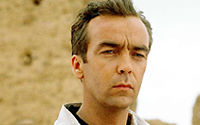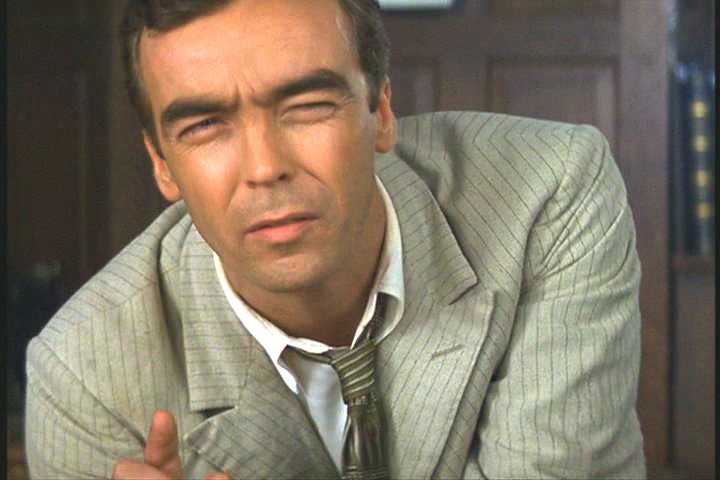|
December 1940 Dearest Sis: To continue from my last letter (and I do hope you've received it in short time for I know the mail is slow), I left my new-found friends in the village of ---. Miss H--- admonished me to take extreme care and exercise good judgment. As a parting gift, she presented me with a small stack of writing paper, scented with lavender as you may have noticed. As a farewell offering, the vicar's wife C--- presented me with a freshly baked apple pie (though cooled so as not to stoke the appetites of my fellow travelers).
We must be free, or die, who speak the tongue that Shakespeare spake Just as I had turned upon my heel, the vicar, D---, rushed up to bade me goodbye. Hearing the words the youth, G---, had spoken to me, he told me that upon the liberation of London from the daily bombings, the people had gone through the streets, ecstatic, yet also sad knowing the Luftwaffe would surely continue bombing London (and other cities) by night. Quotes were heard, also from Wordsworth,
and I reprint them here, although they refer to the Napoleonic Wars:
On British ground the invaders are laid low: The breath of Heaven has drifted them like snow, And left them lying in the silent sun, Never to rise again! the work is done. Come forth! ye old men, now in peaceful
show,
Divine must be that triumph,
And so I find myself on the proverbial high road, towards life, instead of the low road, which, as you know, means death, especially death far from home (from the Jacobite's soldier's poem "Loch Lomond" as I know you're interested in poetic literature). As I am again traveling by train, I find myself with time on my hands, in between chatting and taking tea, writing to you and writing to my son. Blackouts are hardest to endure during the long late autumn evenings, don't you agree? The more southerly latitudes of the world enjoy longer hours of daylight during the winter but we citizens of the United Kingdom enjoy less than eight hours of daylight, which makes a long winter's night curled up with a book in an inner room, away from the windows. Even less winter daylight knocks on the doorsteps of those living in our northern neighbor. In the Orkneys, less than four hours of daylight ensue which means far longer hours in blackout restrictions than those English living in more southerly latitudes. The ingenuity of the people amazes me!
Traveling through English settlements, I had a chance to wander through
the villages, towns and smaller cities.
Village inhabitants generally have enough to eat, although rations are rather strict. As I mentioned in my last letter, living in the country gives one a better opportunity to plant a largish vegetable garden so that one may store produce for the winter. Chickens and ruminants (goats are becoming popular, sheep and cows) are kept on positively postage stamp size plots of land. In larger towns, it's a bit more difficult to find land, and everywhere one looks, vacant land is planted (or had been planted) with a garden: around the house, alongside the roadway, in the town common. The smaller (and larger) city inhabitants have it most difficult of all: cold water flats abound in crowded tenements reminiscent of a Dicksenian story. Mentioning to Miss H--- that although the government indicated each person would receive so much of a certain food item: 8 ounces of sugar per week, eight ounces of fat but no more than two ounces may be butter, two ounces of tea per week (really, sister dear, that's about twenty tea bags and to make a proper pot of tea one needs one tea bag per person plus an extra for the pot), one egg per week and a measly three ounces of meat per person per week--often times there isn't enough food supplies to go around and the food shops must close four to five days a week. Butchers have managed to come up with an ingenious way of allowing more meat to be sold (and thus get around the rations): they sell the bones with chunks of meat clinging to the bone and they have devised ways of cooking and serving 'bone meat'. The most popular method is simply to boil
the bone with an assortment of vegetables and potatoes or rice. This gives
a meaty broth, I'm told. Three ounces of meat is about the size of a playing
card and the children's mouths water at the mere mention of meat in simple
conversation.
Sweets rations are toughest on the children.
For what is childhood, what is Yuletide without the sweetness of chocolates?
Sitting here on the train, rolling through the drab, dully coloured winter countryside, I am reminded of those bitter days back in the First War. I find myself in need of relating this memory to you, sister, and I shall, one day, relate this memory to my son Ian. I have copied this section of my letter to you in my Journal, in case this letter should be lost. You may not remember the First War as vividly as I, sister, as I rarely spoke of my time in France. The memory still pains me, being a relief ambulance driver for a few months, and ferrying the wounded troops over in Vichy. You did not know I had been a relief ambulance driver? You did not know sister, for I merely said that I was going abroad, and everyone merely assumed I was traveling to Egypt. I had been signed up as a worker in the relief organizations (and to refresh your memory, the Carnahan estate did not receive any white feathers), much like Alex has signed up in this second war. During an onslaught of fighting in France during the spring of 1918, several ambulance drivers were wounded. I volunteered to go on relief duty immediately and found myself stationed in Vichy. Vichy. Do you know to what I am alluding? Writing these words, I see, has stained the lavender scented writing paper Miss H--- so kindly presented to me as a parting gift. Vichy. The village brings up sad memories. Upon my arrival at dawn in Vichy the first day of spring 1918, I was greeted by intense shelling, and the stench of those soldiers--brave men!--who had had the insult of having mustard gas being used in their presence. Sterile bandages were in short supply, as were ambulance drivers. Immediately I commandereed the nearest ambulance and drove into the midst of the shelling, evading and avoiding being hit by gunfire in order to reach the wounded (and dead) soldiers on the battlefield. For the next three months, I drove the wounded from the battle field to the surrounding field hospitals. At times, I would ferry those discharged by reason of shell shock (or severe wounds, or illness) to the ports of France where a boat would take the wounded soldiers back across the Channel towards beloved England. I can not count the number of wounded (and dead) that I helped get to medical assistance (or more often as was the case, to be tallied up as part of the 17 million killed). There is one man, however, whom I remember vividly, whom I drove to the field hospital on April 1, 1918. Although at first I did not realize his name, or his face, as he was near death. He lay in the ambulance, snugged next to the bodies of two men I had picked up earlier. His wounds bled profusely and bled into the uniforms of his two dead comrades. He babbled a lot--wanting his mother--and he asked his mother to hold him, and to sing him a lullaby once again before he goes away forever. He told his mother never again would he see the white cliffs of Dover, nor the glorious river Thames. "Will Cleopatra's Needle wail for me?" he asked his unseen mother. I thought my acquaintance to be speaking nonsense. "Or will the Needle shake in mirth at my death?" Oh sister! You've heard the laughter coming from the curse surrounding Cleopatra's Needle--how the thirty five hundred year old pink obelisk has eerie laughter sounding at night. Many's the time I heard you arguing with yourself, trying to find the spell to lift the curse. Sister, dear, he knew he was dying, and there was nothing he, nor I could do about it. I drove like one possessed, evading the sniper fire, evading the shelling, maneuvering the ambulance around the large holes in the road, in my attempt to get this man to the hospital where, perhaps (oh my foolish young mind) thought that the doctors would make him live. Upon reaching the hospital, I immediately jumped out and ran to the back of the ambulance. Flinging open the doors, I, along with another man who had come to help, reached in and grasped the handle of the gurney carrying him. It was then that he looked up into my face and gasped my name! "Jonathan! Jonathan Carnahan! Oh, to find a familiar, friendly face amidst the pain of my death!" I blinked, not realizing at first who was speaking to me. "It's me, Johnnie! Issac Rosenberg! I remember you from the London clubs," Issac told me as me and the other man, Bradley Johnstone, pulled him out of the ambulance. "Issac?" I asked, my face paled considerably. I looked at the blood soaking through Issac's uniform and knew, by the strange translucence of his face, that Issac was about to die. I continued. "Yes, yes, Issac. I remember. How could I forget the artist whose superb sketch of myself still hangs over my fireplace as I speak?" Issac smiled then, a wan smile. Blood bubbled out of his lips and dribbled down his chin, down his neck. "Let's get this dying over with, okay?" Issac asked me as Bradley and I walked as fast as we could towards the hospital room where surgeons awaited our arrival. Loud clamor from the nurses ensued: "Oxygen!" "Anethesia! Get the anethesist!" Doctors hovered around as Bradley and I helped to transfer Issac to the operating table. "Hey, friend? Don't leave me, okay? Don't leave me to die here alone. Remember the old poem about Loch Lomond? I'll be returning to England before you, Johnnie boy, but my route will be the low road." "I'll stay. I'll stay till the end, Issac, my friend," was all I could say as I held his hand while the anesthesia went to work. But before the anethesia was in full effect, Issac had passed away. He gave one last strangled breath, the his labored breathing was still. The blood stopped bubbling from his lips. I stood there, leaning over him, holding his hand, for some time before a nurse pulled me away from him and drew a sheet over Issac's face. And as I write these words, as I mentioned
earlier, I see the paper is again stained, so forgive me sister dear.
I shall take my leave of you now, as the memories of Issac are too strong at the moment. But rest assured that I am thinking of you, Alex, and Rick as I travel through England.
All my love, |
 The village's youth sent me off quite admirably,
informing me that Britannia would never fall to the Axis and they quoted
Wordsworth from "Sonnets of Liberty" to lend credence to their words:
The village's youth sent me off quite admirably,
informing me that Britannia would never fall to the Axis and they quoted
Wordsworth from "Sonnets of Liberty" to lend credence to their words:
